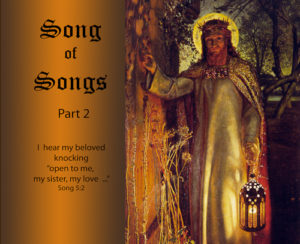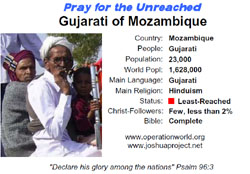SEPTEMBER 7- TODAY’S READING FROM THE ONE YEAR BIBLE- SONG OF SONGS 5:1-8:14; 2 CORINTHIANS 9:1-15; PSALMS 51:1-19; PROVERBS 22:24-25
TODAY’S READING FROM THE OLD TESTAMENT- SONG OF SONGS 5:1-8:14.
 There are two books in the Bible where ‘God’ is not mentioned- The Book of Esther and The Song of Solomon. Yet, we have already seen how God is present in the Book of Esther. He is actually the unseen hero behind the scenes. He is the main character, orchestrating people and events in history to fulfill His purpose. He uses the intercession of Mordecai, Esther, and providential circumstances to provide for the deliverance and preservation of His people. All of this is with Christ in view! God will bring forth His Promised Seed, the Messiah. God’s purpose will not be thwarted. Although He is never mentioned, it is His story. The true significance of The Book of Esther is made clearer in the context of the larger Biblical narrative, stretching from the promise given to Abraham that the nations would be blessed (with salvation) through his promised Seed, through to the New Testament, where we see the culmination of that promise in the Person and Work of Christ.
There are two books in the Bible where ‘God’ is not mentioned- The Book of Esther and The Song of Solomon. Yet, we have already seen how God is present in the Book of Esther. He is actually the unseen hero behind the scenes. He is the main character, orchestrating people and events in history to fulfill His purpose. He uses the intercession of Mordecai, Esther, and providential circumstances to provide for the deliverance and preservation of His people. All of this is with Christ in view! God will bring forth His Promised Seed, the Messiah. God’s purpose will not be thwarted. Although He is never mentioned, it is His story. The true significance of The Book of Esther is made clearer in the context of the larger Biblical narrative, stretching from the promise given to Abraham that the nations would be blessed (with salvation) through his promised Seed, through to the New Testament, where we see the culmination of that promise in the Person and Work of Christ.
The same is to be said of The Song of Solomon. God is present in these love poems. We learn of this book’s significance in the context of the larger Biblical narrative. According to 1 Kings 4:32, Solomon is said to have written a thousand and one psalms, yet only 3 of his psalms are in the Bible- Psalm 72, 127 and Song of Solomon. (Some see Song of Songs as a collection of love poems rather than just one, which then would increase the number of his published psalms only slightly.) Solomon is also believed to have been the author of the Book of Ecclesiastes. He gave us the account of the Qoheleth, the Reporter, who described life without a covenant relationship with God as ‘vanity of vanities’. ‘Song of Songs’ is rightly positioned in the Bible to provide a contrast to viewing life as empty and meaningless. What makes the difference? A covenant relationship with the Living God. Although the Song of Solomon describes the conjugal love of a man and woman, husband and wife celebrating the gift of their sexuality in the context of marriage, the Holy Spirit has authored this book to give us a greater picture of the love life initiated by a Covenant-Making, Covenant-Keeping God and His people. The Apostle Paul makes it clear in the Book of Ephesians that from the beginning, marriage was a picture of the Divine Purpose of Redemption, which was to bring about the wedded relationship of Christ and His church. A bride has been won for God’s Son, bone of His bone, flesh of His flesh.
Ephesians 5:25-33 25 Husbands, love your wives, just as Christ also loved the church and gave Himself up for her, 26 so that He might sanctify her, having cleansed her by the washing of water with the word, 27 that He might present to Himself the church in all her glory, having no spot or wrinkle or any such thing; but that she would be holy and blameless.
Husbands are told how to love and cherish their wives as their own bodies (Ephesians 5:28-29) as Christ does the church (Eph. 5:29). For we are members of His body (Ephesians 5:30).
Paul explains that Christ’s love for the church is not an afterthought, an illustration of marital love. It is the other way around. Marriage is an illustration of Christ’s love for the church. The church was in God’s mind before Adam was formed and the woman taken from His side!
 Marriage is temporal. The wedded bliss experienced by Christ and His church is eternal!
Marriage is temporal. The wedded bliss experienced by Christ and His church is eternal!
The Song of Solomon is traditionally read by Jews every year at the Feast of Passover. Yet their Passover Lamb and Heavenly Bridegroom, remains hidden to their eyes. They long for Him, but have not yet found Him. One day He will make Himself known to them.
What is your relationship like with Christ? Do you enjoy sharing in His life? Does He enjoy sharing in yours? What is your relationship like with the body of Christ, which is His bride? Do you appreciate each member of the body as He does? The Book of Ephesians tells us that He is both the church’s bridegroom and head. He is the head of the body, and the body itself is the vehicle of expression for the life of Christ.
1 Corinthians 12:12 12 For even as the body is one and yet has many members, and all the members of the body, though they are many, are one body, so also is Christ.
This is not merely a conjecture or a suggested analogy. Paul’s writing in 1 Corinthians 12 and Ephesians 5 are in agreement. It is a revealed mystery.
Ephesians 5:31-32 31 FOR THIS REASON A MAN SHALL LEAVE HIS FATHER AND MOTHER AND SHALL BE JOINED TO HIS WIFE, AND THE TWO SHALL BECOME ONE FLESH. 32 This mystery is great; but I am speaking with reference to Christ and the church.
In Chapter 5 of The Song of Songs, the Bridegroom takes pleasure in His time of communion with His beloved bride. In the church’s times of fellowship with her heavenly Bridegroom, she is fed His Word which is sweeter than the honey and honeycomb.
In chapter 5:2-8, we have the second of two dreams, both of which are ‘seeking/finding’ dreams (the first was in 3:1-5). The parallels in Song of Solomon are part of the poetic structure, rather than ‘straight narrative’ structure of the book.
The bride is awakened ‘in the dream’ not ‘from the dream’ (5:2). The Bridegroom once again makes an initiation for communion with the Bride, but she misses the opportunity (5:2-6).
This makes us pause and wonder if we are as quick to respond to the Lord as we could be. We may have excuses, like the Shulamite, that we are not willing to come to the door, but we cannot have the Lord on our own terms. She calls for Him, but He is no longer nearby.
Isaiah 55:6 6 Seek the LORD while He may be found; Call upon Him while He is near.
In her seeking after Him whom her soul loves, she is captured by the guards, who strike her and wound her. The watchman tear off her veil (5:7). Did they mistake her for a woman of the night? Those who were appointed to safeguard the city of God once again prove that they do not know the Shepherd King, though they were originally appointed by Him.
Have you been wounded by religion, legalism, or the spiritual abuse of false gospels?
She then makes a plea to the daughters of Jerusalem, those who by nature are responders, sympathetic to her cause. They ask her to describe her beloved to them and pledge that they will help her find him.
As she describes him, you can sense her passionate desire for him grows.
She describes his excellencies from head to toe. Then she is drawn back to the means of his communication of his love to her.
Song of Songs 5:16 16 “His mouth is full of sweetness. And he is wholly desirable. This is my beloved and this is my friend, O daughters of Jerusalem.”
 She realizes in Chapter 6 that she must seek Him out where He communes with the flock and the garden in which He delights (6:2-3)
She realizes in Chapter 6 that she must seek Him out where He communes with the flock and the garden in which He delights (6:2-3)
Song of Songs 6:3 3 “I am my beloved’s and my beloved is mine, He who pastures his flock among the lilies.”
When he sees her, he praises her for her beauty. She is as beautiful as Jerusalem (6:4). Jerusalem features as the center stage of redemption, so it is no wonder that this relationship mirrors the gospel love of the heavenly Bridegroom for the Bride!
 In our readings from Psalm 48 and 50, we see God’s affection for Jerusalem, the City of our God, the mountain of His holiness.
In our readings from Psalm 48 and 50, we see God’s affection for Jerusalem, the City of our God, the mountain of His holiness.
Psalm 50:2 2 Out of Zion, the perfection of beauty, God has shone forth.
He describes her in shepherdly terms, affectionately seeing the characteristics of the flock in her. After all, this is the corporate bride of the Good Shepherd (6:5-6).
The reflection of the bridegroom is seen in the eyes of the bride. He is overwhelmed and turns away. Other women praise this glorious bride.
Song of Songs 6:10 10 ‘Who is this that grows like the dawn, As beautiful as the full moon, As pure as the sun, As awesome as an army with banners?’
The bride struggles with homesickness for Shunem. But the daughters of Jerusalem encourage her to make her home with the King.
When the daughters ask why should the king seek a Shulamite, He praises her. This time rather than describing her head to toe, he goes from toe to head, describing her beauty in royal terms.
Song of Songs 7:5 5 “Your head crowns you like Carmel, And the flowing locks of your head are like purple threads; The king is captivated by your tresses.
The delight of their adventures in conjugal love and mutual desire is expressed in Chapters 7:6- 8:3.
Song of Solomon 8:4 is similar to 2:7 and 3:5. Scholars vary their translations of the pronoun in selecting ‘he’, ‘she’, or ‘it’. You may notice in your Bible, an alternate reading:
Song of Songs 8:4 4 “I want you to swear, O daughters of Jerusalem, do not arouse or awaken love until it pleases.”
The idea here is that love is so sacred that it should not be forced or trifled with. Let love have its way. In the New Testament context, Love is the fruit of the indwelling Spirit of Christ. Do not interfere with Love. It bears all things, believes all things, hopes all things, endures all things. It never fails (1 Corinthians 13:7).
We cannot force the love of Christ on others; we pray that love will arouse and awaken spiritual desire under the direction of the Holy Spirit.
Has the Shepherd-King captured your affections? Is your longing for conscious communion with Him increasing or diminishing? Seek Him while He may be found. Search for Him as He keeps company with His flock. Call upon Him while He is near.
 The book closes with some wonderful descriptions of the power of love.
The book closes with some wonderful descriptions of the power of love.
Song of Songs 8:7 7 “Many waters cannot quench love, nor will rivers overflow it; If a man were to give all the riches of his house for love, it would be utterly despised.”
The book closes with a scene where the Shulamite returns to her mother’s home. She remembers what her brothers said about her when she was a prepubescent youth. They did not think she was ready for marriage and were protective of her. The images of the wall and the door have to do with her days of virginity. If she were a door, that would mean that she would be loose and easy, sexually promiscuous. But she claimed to have been a wall (Song 8:10). She kept herself a virgin till marriage.
 While the King has many vineyards, he is happy with this one vineyard. In the final verses, we see that she is ready to go where He goes, ministering to those in the garden. She shares in the fellowship, hungering for His Word.
While the King has many vineyards, he is happy with this one vineyard. In the final verses, we see that she is ready to go where He goes, ministering to those in the garden. She shares in the fellowship, hungering for His Word.
Song of Songs 8:13 13 “O you who sit in the gardens, My companions are listening for your voice— Let me hear it!”
She also lives in the expectation of fresh visitations, anticipating the cry of the church: “Even so, come Lord Jesus!”
Song of Songs 8:13-14 13 “O you who sit in the gardens, My companions are listening for your voice— Let me hear it!” 14 “Hurry, my beloved, And be like a gazelle or a young stag On the mountains of spices.”
TODAY’S READING FROM THE NEW TESTAMENT -2 CORINTHIANS 9:1-15
 Paul continues to expect that the Corinthians will rise to the challenge to come through with their promise of a bountiful gift. Will we be a generous people, or will we be covetous?
Paul continues to expect that the Corinthians will rise to the challenge to come through with their promise of a bountiful gift. Will we be a generous people, or will we be covetous?
2 Corinthians 9:6 6 Now this I say, he who sows sparingly will also reap sparingly, and he who sows bountifully will also reap bountifully.
We can never out-give the Lord. Paul challenges the church to put the Lord to the test.
2 Corinthians 9:8 8 And God is able to make all grace abound to you, so that always having all sufficiency in everything, you may have an abundance for every good deed.
Their generosity in giving is not only a blessing to the recipients, in this case, the church in Jerusalem, but also it is a tribute to God and an inspiration to other saints.
Our attitude in giving reflects the gratitude in our hearts for the “indescribable gift” of a Living, Loving Lord, and Savior. How can we adequately express our thanksgiving in words? Let us express our thanksgiving in the way we love one another and support those in need.
The Lord loves a cheerful giver. (The Greek word for ‘cheerful’ is ‘hilaros’, from which we get the word ‘hilarious’).
New Testament principles of giving can be summed up in the anacronym- P-A-R-C-E-L-S. We are called to give:
P-Proportionately (1 Corinthians 16:2) according to what a person has (2 Corinthians 8:12; 9:6)
A- Anonymously (Matthew 6:3)
R- Regularly (1 Cor 16:2)
C- Cheerfully (2 Cor 9:7)
E-Expectantly (Luke 6:38)
L- Locally (Malachi 3:10- the storehouse- where the saints are fed)
S- Sacrificially (2 Cor 8:2-3, 13)
TODAY’S READING FROM THE BOOK OF PSALMS- PSALMS 51:1-19
 Psalm 51 is the classic Psalm of Confession. We should read it regularly on our knees. We should read it out loud. We are sinners in need of God’s abundant mercy. Our transgressions, iniquity, and evil deeds must be erased. The sin barrier that separates us from face-to-face fellowship with God must be removed (Isaiah 59:2). Jesus’ sacrifice on the cross paid our sin-debt in full and opened up the way. To be in a right relationship with God means that we are walking in the light as He is in the light.
Psalm 51 is the classic Psalm of Confession. We should read it regularly on our knees. We should read it out loud. We are sinners in need of God’s abundant mercy. Our transgressions, iniquity, and evil deeds must be erased. The sin barrier that separates us from face-to-face fellowship with God must be removed (Isaiah 59:2). Jesus’ sacrifice on the cross paid our sin-debt in full and opened up the way. To be in a right relationship with God means that we are walking in the light as He is in the light.
If we confess our sins, He is faithful and just to forgive us our sins and cleanse us from all unrighteousness. (1 John 1:9).
This is a Psalm of David, when at last, after Nathan’s rebuke, he honestly confesses his sin before God (His sins of adultery and murder). He knows he is a sinner and that God is just and merciful.
There is no self-justification in this prayer. He realizes that God desires truth in the inward being. He cannot blame anyone but himself for his actions. He cannot blame his upbringing because he was born dead in his trespasses and sins.
Psalm 51:5 5 Behold, I was brought forth in iniquity, and in sin my mother conceived me.
He asks for cleansing. Purge me with hyssop. Hyssop was the branch that was used to apply the blood to the post and lintels of the homes of the Jews in Egypt on the night of the Passover. It is when the angel of death sees the blood that he passes over. Mercy triumphs over judgment because of the blood of Jesus, our Passover Lamb.
David not only prays for forgiveness. He prays for a new heart and Spirit. He prays for Christ to be the center and source of His life.
In this prayer of penitence, David offers to God what God requires- a humble admission of his need for Christ.
Psalm 51:17 17 The sacrifices of God are a broken spirit; A broken and a contrite heart, O God, You will not despise.
TODAY’S READING FROM THE BOOK OF PROVERBS- PROVERBS 22:24-25
Proverbs 22:24-25 24 Do not associate with a man given to anger; Or go with a hot-tempered man, 25 Or you will learn his ways And find a snare for yourself.
You may have heard the expression, “If you wrestle with a skunk, you end up smelling like one.” If you associate with a man of anger, not only may you pick up his hot-headed habits, but people will associate you with his temper tantrums and whatever bee is buzzing in his bonnet.
PRAY FOR THE NATIONS- MOZAMBIQUE
Republic of Mozambique
Africa
Geography
The Zambezi and 24 other rivers divide the 2,800 km-long land and make north-south travel difficult.
Population: 23,405,670 Annual Growth: 2.35%
Capital: Maputo
Urbanites: 38.4%
HDI Rank: 172 of 182 (UN Human Development Reports 2009)
Peoples
 Peoples: 62 (15% unreached) All peoples
Peoples: 62 (15% unreached) All peoples
Unreached Peoples Prayer Card
Official language: Portuguese, understood by less than 30% Languages: 53 All languages
Religion
Largest Religion: Christian
|
Religion |
|
Pop % |
Ann Gr |
|
10,878,955 |
46.48 |
2.6 |
|
|
2,606,512 |
11.1 |
5.4 |
Answer to Prayer
The country has enjoyed peace since 1992 after 30 years of war, and the politicians have genuinely endeavored to maintain and build on this peace. The government has performed admirably in advancing the nation’s democratic, economic and religious freedom status.
Challenge for Prayer
Mozambique’s brokenness continues. After being shattered by colonialism and civil war, natural disasters, and debt burdens, Mozambique remains one of the world’s poorest nations. Personal brokenness also persists as many have been traumatized by the violence and deprivation. Turn these major challenges into prayer:
a) Continuing natural disasters. The cyclones, floods, and earthquakes disrupt development and destroy infrastructure, not to mention take many lives.
b) Heavy reliance on aid and a high public debt combine with existing poverty to make economic growth a challenge. Many struggle from day to day just to survive, but progress is being made.
c) Life expectancy averages only 48 years, to a large degree because of disease and extremely basic medical facilities for most. Pray for effective, practical programs that assist those who need it most.
i AIDS is a major challenge, with 16% of the adult population HIV-positive. The faith communities and government have united with a national action plan. Pray that a reversal, as in some other African countries, might occur.
ii Malaria is an even greater bane, with a much higher prevalence – over 5 million cases a year – taking many lives and sapping the health of those who survive.
iii Other medical issues such as diarrhea and tuberculosis become even more lethal amidst intense poverty and especially when combined with the above two diseases.
PRAYER: Gracious God and Father of our Lord Jesus Christ. We praise You for Your plan. We are humbled that You have chosen us before the foundation of the world to be a co-regent with Christ in Your eternal kingdom. In Christ, we have all that we need. We can say “I am my beloved’s, and He is mine” because of the price He paid on the cross. Continually work in our lives. You desire truth in our inner being. We want to be honest with You and quick to repent and confess our sin. Cleanse us with hyssop and give us the grace to live in the power and strength of a new heart. In Jesus’ Name. Amen.


